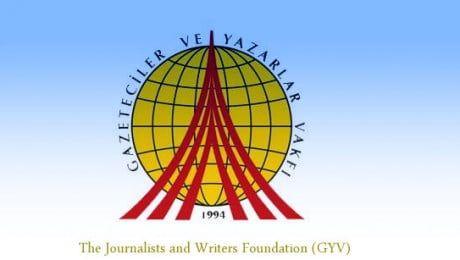Keyword: Turkey

Yalçınbayır: Turkey has tendency towards institutionalization of bribery, corruption
Former Deputy Prime Minister and a former leading member of the ruling Justice and Development Party (AK Party) Ertuğrul Yalçınbayır said on Sunday that bribery and corruption have always been in Turkish politics and that there is a tendency toward the institutionalization of such crimes in the country.

Erdoğan gov’t signals change to allow re-trial of officers
At public rallies, Erdoğan has been floating a claim that a gang within the state is attacking his government in the name of corruption. He claimed he has evidence with regard to this group and wanted to expose this evidence soon.
Erdoğan has not offered any evidence so far indicating that such a group acting in violation of the law operates within the judiciary or police force.

Can the EU be blamed for Erdoğan’s authoritarianism?
It may be speculated that the EU’s resistance to Turkey’s European integration has to a certain extent played a role in Prime Minister Recep Tayyip Erdoğan’s slide into authoritarianism. If the EU had consistently backed its accession process, Ankara may have consolidated democracy and rule of law, so that such a concentration of power could have been avoided.

Former politicians call on candidates to publicize personal assets
One hundred politicians who previously served in Parliament, including former ministers, issued a declaration on Saturday calling on the candidates in the upcoming local elections to declare their personal assets to the public to prevent allegations of bribery and corruption.

Irrationality rules
Nobody outside of Turkey understands why a government that claims to be innocent and portrays itself as the victim of dirty conspiracies uses every legal — and according to many illegal — means at its disposal to stop further investigations and punish those who gathered the evidence or wrote the indictments.

GYV head dismisses ‘parallel state’ allegations against Hizmet
Journalists and Writers Foundation (GYV) Head Mustafa Yeşil said use of ‘parallel state’ argument against the faith-based Hizmet Movement led by Turkish Islamic scholar Fethullah Gülen is reminiscent of Feb. 28 coup period’s practices, and represents a coupist and discriminatory approach towards certain social groups.

The end of ‘unshakable’ AKP myth
For the last couple of days, the codes and rules, which have been turned upside-down by Turkey’s ruling AKP, have become hard to keep up with since the AKP was forced to fight a self-created “monster.” The option for a snap election call seems the wisest option for his party but stakes are high over there too if he fails in his traditional “victimization” rhetoric, which worked well in many previous crisis, to convince his electorate.

Saving the soul of Turkey [amid the graft probe]
In terms of fundamental rights, Erdoğan does not tolerate any dissent or critical media at all. He publicly bashes reporters, labeling them traitors or foreign agents just because these members of the press corps are exercising their right to freedom of expression. Civic groups like Hizmet are unable to avoid his wrath as well and are easily accused of running “parallel structures” or “gangs” within the state apparatus with no shred of evidence to back these claims.

Fethullah Gulen, the [Gulen] community, and the prep schools
It is no secret that my bonds of affection with the wise religious leader Fethullah Gulen and his movement go back more than twenty years. I trust that Hocaefendi, with his endless sense of fairness, is aware of this situation. He feels offended firstly because the government signed the National Security Council’s brief without hesitation, and secondly because it has profiled [both him and the movement]. In any case, resisting the closure of the movement’s prep schools is the same as resisting an authoritarian course of events!

PM Erdoğan calls on his supporters to boycott [Hizmet’s] prep schools
Calling on his supporters to boycott prep schools, Erdoğan took another swipe at the Hizmet movement, which, according to him, pulled the trigger of the recent corruption operation.However, lawyer of Fethullah Gülen denied any involvement in the recent graft probe, strongly rejected any link to the case.

‘We will not learn how to struggle against corruption from you’
It has already been 10 days that Turkey has been shaking with the corruption scandal that has reshuffled the Cabinet and brought serious international consequences to the country, such as weakening the political position of Ankara in the neighborhood of Syria and Iran and strained ties with the US.

Iran’s Turkish gold rush
While the gas-for-gold scheme may have been technically legal before Congress finally shut it down in July, it appears to have exposed the Turkish political elite to a vast Iranian underworld. According to Today’s Zaman, suspicious transactions between Iran and Turkey could exceed $119 billion — nine times the total of gas-for-gold transactions reported.




















